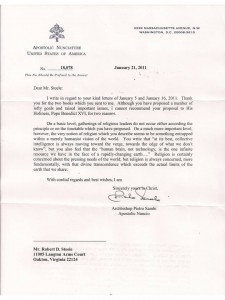Egypt: Today is the “day of rage.” On 25 January, a day honoring Egyptian police, tens of thousands of people demonstrated against the government, calling for President Mubarak to step down. Police used water cannon and tear gas against rock throwing demonstrators.
Egyptian security forces used rubber bullets to disperse an estimated 8,000 demonstrators in Alexandria's central Sidi Gaber Square. More than 1,000 people from various opposition groups protested in Mansoura and an estimated 15,000 protesters occupied Tahrir Square in Cairo. Nearly 5,000 protesters demonstrated in Mahalla and dozens of youth were reportedly protesting in Minya.
Two protestors and one policeman died in the clashes. As in Tunisia online social media served as the channel for organizing the demonstration in large numbers without official permission.
The government cut or restricted aaccess to internet, phone and social media networks, spreading confusion among protesters and temporarily sealing the largest Arab country off from the rest of the world. Access was later restored, although services remained intermittent.
NightWatch Comment: Despite a US statement that the government of Egypt is stable, the demonstrations show that it has suppressed a large undercurrent of potentially incendiary opposition, whose capabilities are not known. Sclerotic regimes like those of Mubarak never know the depth or expanse of their real opposition because they are so busy suppressing it.
This creates the condition for a field-grade officers' coup to install a reformist government, which Egypt has experienced whenever a government has overstayed its welcome. Sadat and Mubarak did that and Mubarak is overdue to have it done to him. If the demonstrations continue for two more weeks, the Mubarak era will be over.
US-Arab States: The United States will use the “Tunisian example” in its talks with other Arab states, U.S. envoy Jeffrey Feltman said during a visit to Tunis, Al Jazeera reported 25 January. The Arab world faces many of the same challenges, and Washington hopes the governments will address legitimate political, social and economic concerns, Feltman said.
NightWatch comment: This is the kind of statement a US official might well regret he ever made. The dedication to democratic change might be commendable, provided the Arab voters are capable of handling it in a sophisticated fashion. That is the rub because the outcome of elections in Arab states or territories to date has not produced results that reinforce US strategic interests, such as the security of Israel.
The political upheaval in Tunisia has not spent itself. It is a gross exaggeration to describe a government of Ben Ali cronies as a revolutionary government. More violence and change are likely.
If the Mubarak government in Egypt is replaced by a revolutionary, anti-US fundamentalist regime, citing the Tunisian example in the name of democracy, all US policy in the Middle East since 1973 becomes unhinged. The overthrow of the Shah of Iran will look like inconvenient by comparison.
NightWatch KGS Home
Phi Beta Iota: The US Government appears to be severely out of touch with both the negative and the positive forces that are converging in 2011 and 2012, both domestically and internationally. Legitimacy is lacking, along with integrity, on all sides. Corruption versus truth…the ripple effect continues. Israel–and its many dual-nationals with Top Secret clearances in policy positions, will spin this against the public interest, and our politicians and bankers will go along with the spin. Lacking is public intelligence in the public interest. Note the tires burning in the streets–we anticipate such tire burning in the USA within the year.
See Also:
Continue reading “Egypt's Day of Rage–Arab Dictatorial Dominos….+ RECAP”







